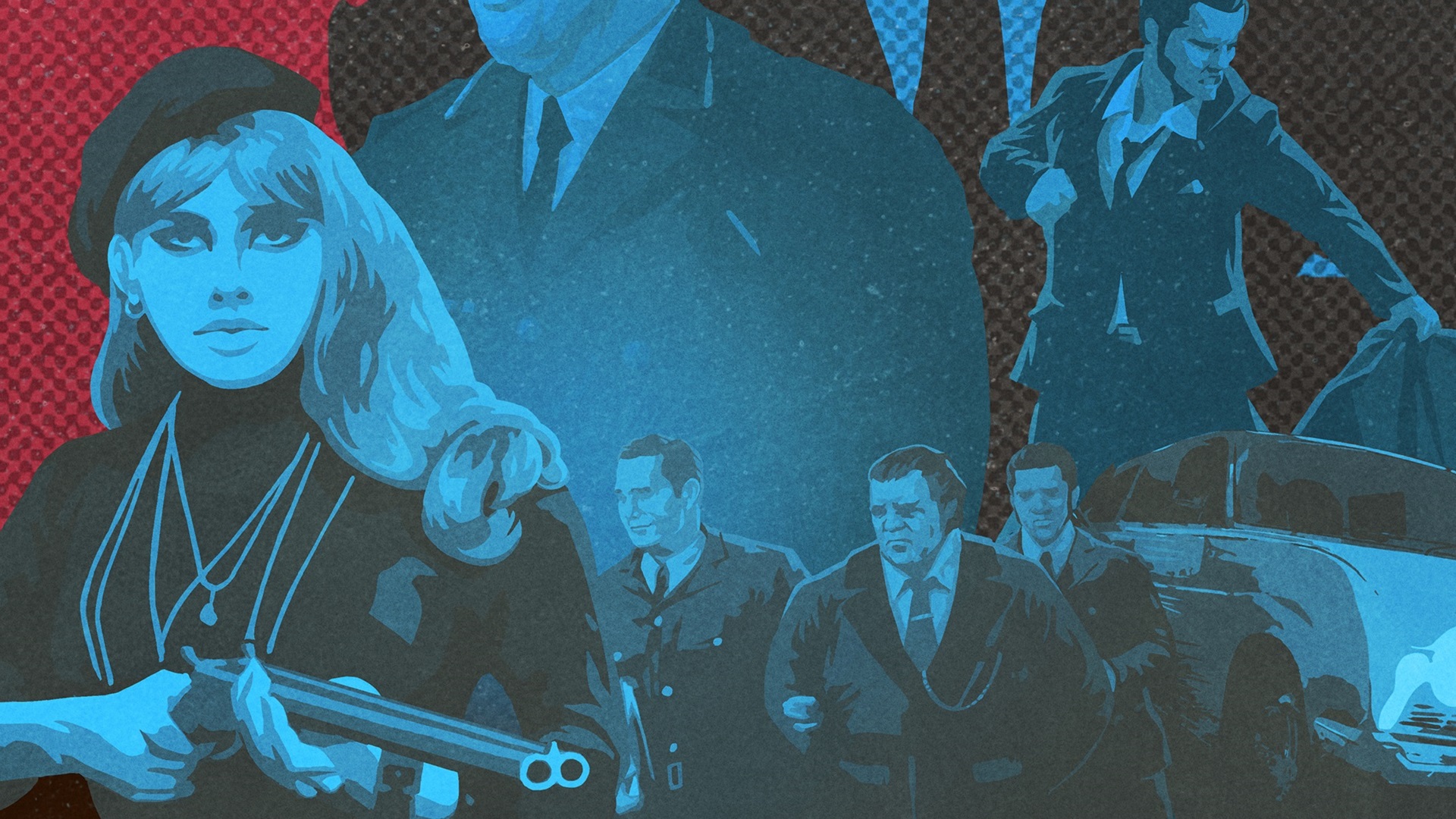Running the streets of London as the ruler of the crime world is no cakewalk. You gotta deal with enemy gangs creeping up every corner. Or the random thug who thinks he’s making a name for himself. The latter is more difficult to deal with. Gangs come and go as your empire grows, but thugs are a dime a dozen.
But all of them combined are small-time compared to keeping the coppers off your back. Cops can come in from outta nowhere, and disrupt business like there’s no tomorrow. Worse of all, the amount of hoops you gotta jump through to keep your crew comfortable in jail, is just freaking ridiculous. How can you expect to make an honest living as a criminal with the Law breathing down your neck?
Company of Crime is a hybrid empire building game and tactical squad game. Its unique selling point is a greater emphasis on non-lethal combat that most tactical squad games don’t usually go for. The other half of the game revolves around taking over the city of London through its various districts. The tactical aspect takes over once you, the boss, mobilize your forces to collect resources and to force out rival gangs. The objective is to build a criminal empire that spans the entire city. In the case of the police, their goal is to raid as many illegal fronts as possible, potentially forcing the leadership out of hiding. Your win condition is the takedown of all major gangs in the city.
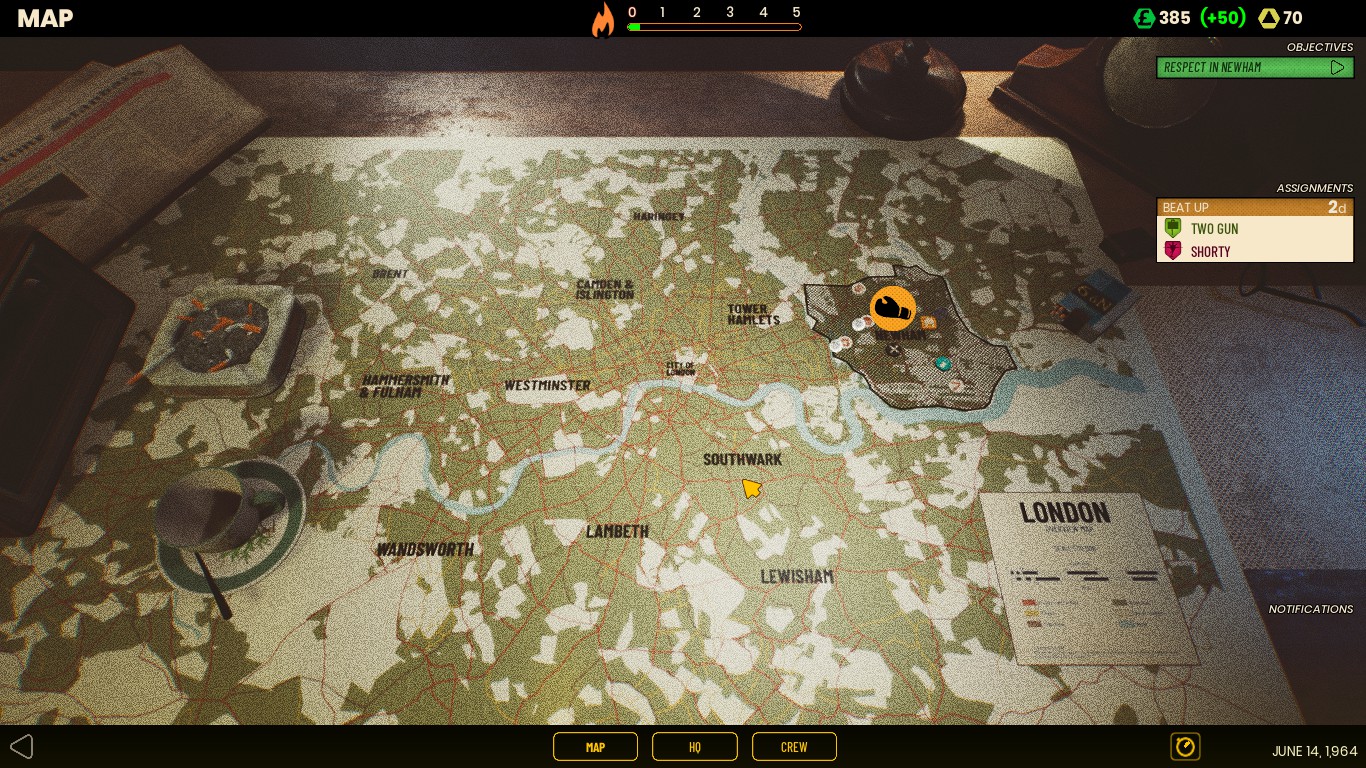
A map of London shows all the major districts within the city. From the player’s starting location, they begin by identifying local businesses within the district. Other support locations also become available as the game progresses. But it’s the businesses that inevitably gets you closer to finishing the game.
If the player chooses to play as the criminals, they have the option to steal from businesses for a one-time cash bonus. Or they can force the owners to sell their business to the organization and they funnel a cut of the monthly payments to the organization. Be warned though, owning businesses draws the attention of the police. Police raids can happen at random, and often at the most inconvenient of times. Failing to escape a raid means losing the business, dropping a whole heap of Heat onto the organization, and the imprisonment of members of your crew.
Actually growing a criminal empire is most likely the hardest part of the campaign. Not only does the organization have to fight over businesses with rival gangs, but they also have to maintain a relatively low level of notoriety to keep the police away. It’s this balancing act that keeps most bosses from going on an all-out offensive against everyone in the city. It’s a rather nice idea, but at the same time, it can get rather tedious as the game goes on.
For players opting to play as the police will find themselves having a much less stressful time on the map screen. The ‘Flying Squad’ is the task force whose job is to raid establishments and arrest criminals on the spot. As the commander of the task force, it is your job to point the police in the right direction. You can send out Sergeants to look for criminal activity or to task them to patrol an area to keep it safe. The more safe an area is, the less criminal activity will be present. The task force is also capable of employing informants in each location to help them look for specific activities.
The only limiting factor the task force initially has is the fact that they don’t have much in the way of man-power. As the task force starts taking down gangs, however, the higher-ups will feel more confident in allocating resources towards the task force. Eventually, it will grow to the point that they’ll be able to secure every street in London. But that’s easier said than done. The criminal element is hard to stomp out. You’ll still have to remain active, regardless of how large the task force becomes.
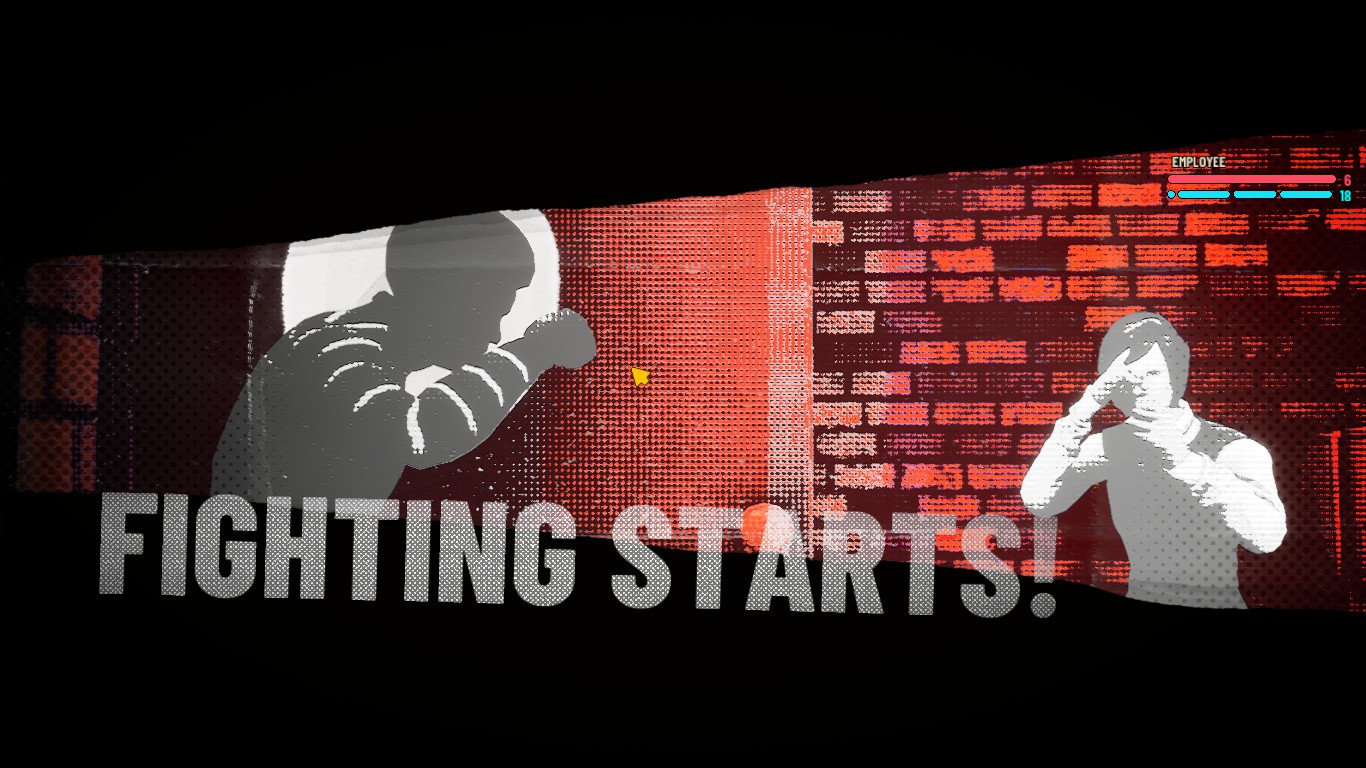
Unity types within the game can be broken down into several general classes. Though there are certain differences that make sure that there’s are a few overlaps between both campaigns.
The front-line tank class for either side is a capable fighter that deals damage equal to the damage they take. They’re good at creating space, an aspect of the game that’s truly important in the Police campaign where hurting anyone besides criminals will land you in hot water with the higher-ups. Both sides also have a class that inflicts status effects. The class is good at throwing enemies off balance. In a tactical sense, this removes the zone of control in front of enemies, allowing your crew to move around more freely.
The criminals have a couple of classes where one specialize in hit-and-run tactics, while the other influences the flow of battle with their voice. The latter is also good at ranged combat. Something that comes into play only as a last resort. the police equivalent, the Forensic Investigator, is a hybrid of both classes. In essence, a fast-acting unit that supports from afar.
Both campaigns play very differently from others. For starters, the police have access to an unlimited amount of gear and support items. Criminals have to smuggle their weapons and drugs through legitimate businesses. Costing them money and man-power. Speaking of money, the police also don’t make use of that resource. Criminals, on the other hand, constantly have a need for capital. Cash the crew brings into the organization is needed to hire new crew members, buy items, and bribed journalists. Money is also needed to maintain a certain level of comfort for crew members unfortunate enough to have run-ins with the law. They’ll need another resource called Influence to get them out of jail. Honestly, it’s rather costly to have more than a few members locked up for extended periods of time.
The cops’ main resource comes in the form of Sergeants. Beat cops that act as boots on the ground that keep the community safe. The player can allocate up to 3 sergeants to a certain area. Depending on the situation, they would either be actively looking for crimes or looking for informants. Once the heat’s died down in the area, that’s when they begin patrolling to keep the peace. By doing all these actions, the police hope to collect Evidence against the gangs. With enough Evidence, they can take down the leadership for good.
Fear and respect are the lifeblood of any criminal organization. The more people fear you, the easier it is to extract money from them. With enough fear, the mere mention of your name is enough for them to hand over the money without so much as a fight. Opposing rival factions garners the respect of the criminal underworld. With enough respect, businesses will open their doors and welcome your take over with open arms. (Figuratively speaking, of course.)
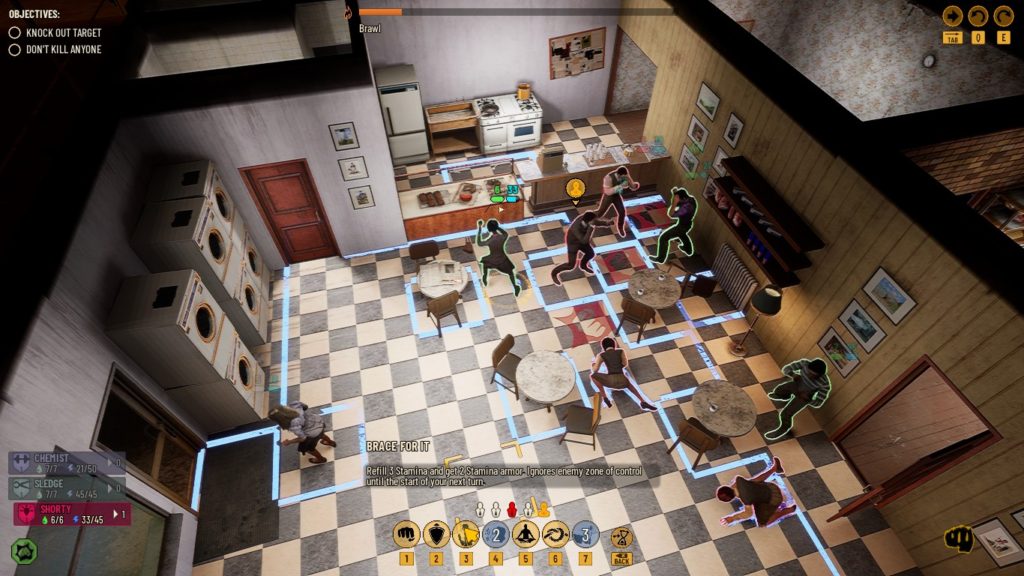
In terms of preparations, both sides require a good amount of time to stake out an establishment. Once everything’s ready, they gather their crew together and head out to the location. The game switches to a tactical squad… ‘beat ’em up’. Let me make one thing clear – there are guns in the game. But according to the game’s logic, guns make you stupid. As the criminals, bringing out guns is the fastest way to start an all-out gunfight. It’s the riskiest way to play the game. For one thing, death is absolute. Once health drops down to zero, that unit’s gone for good. Furthermore, it’s common practice to throw away guns linked to a homicide. That’s the only way to avoid the heat but those expensive firearms are nothing more than dead weight in the river. That’s why fists do all the talking, most of the time.
Cops have one rule that prevents abuse – do not use excessive force. That means no beating up someone to death. Hitting civilians is also a no-no. Officers who go beyond what’s necessary will be suspended for a period of time. Knocking out enemies and/or arresting them is much more preferred.
The emphasis on non-lethal combat is one of the most novel things about the game. There are systems in place, such as zones of control, that prevent the fight from devolving into a slug-fest. Zones of control are certain tiles in front of the character that prevent anyone from potentially walking around for free. Crossing a zone is an open invitation to a beat down and an interruption to their action. It’s better to respect the zone of control. Tank classes and control classes are great at breaking zones of control. Their skills allow others to maneuver behind opponents, breaking the stalemate.
Of course, all that fighting is going to catch up with you eventually. Units with stamina damage just need a few days to recover stamina. Giving them some time off from stakeouts and the like enough. Although, they can still take part in missions, don’t expect them to go in 100%. Taking Life damage is an entirely different matter. A few bumps and bruises won’t be enough to sideline anyone. But if they continue to take life damage, they’ll be out of commission of quite a bit of time. I wish I can say that it would be wise to avoid damage, it’s not going to be likely. Rather. It’s better to have some of the crew stay on standby just in case something happens.
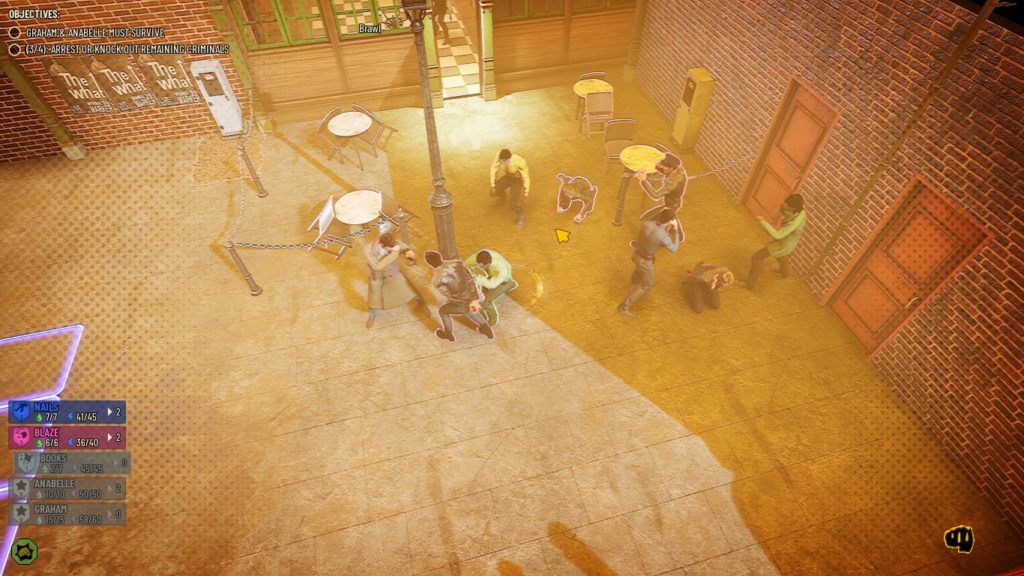
Enemy gangs, while they do come with various designs and distinguishing moves, don’t exactly have much to offer in terms of depth. Let’s take the Piston Club, for example, they like to rough people up, knocking them against walls and tossing their targets aside. They’re a gang you rather want to face in wide-open space. The Yardie Posse, on the other hand, tend to tie up their enemies before delivering the smackdown. In this case, you’d want to take down members one by one to eliminate their advantage as much as possible.
Both gangs have this specific gimmick, but here’s the thing… they don’t go any deeper than this. Even the so-called bosses, the ringleaders for these gangs, are just regular gang members with a larger stamina pool. It’s rather underwhelming when you think about it. The gangs that appear after them don’t exactly strike fear into the hearts of lesser gangs, they’re just beefed-up versions of the ones that came before them.
In terms of graphics, the visuals are passable, at best. The environments are bland by modern standards. The only thing it has going for them is the fact that they have dozens of unique locations, some involving a second floor. But it doesn’t take long for the novelty to wear thin as we are forced to revisit these same locations over and over again. With that being said, it is only just to give credit to the team for adding in the 1960’s pop-art wherever they can. It’s a slight boost in terms of appeal.
The character animations look the part, especially when it comes to grappling and executing special attacks. But I wish there was a slight difference in poses for each class. Yeah, I get that they need to have their fists up all the time. But to have all the characters perform the exact same animation gets really tiresome at some point.
The delivery of the voice lines is serviceable. The actors do an OK job in portraying a bunch of angry Brits with authority issues. It matches up well with the pop music that’s on full blast the entire time. One of the highlights I can say about the game is the fact that I can do business on the map screen while listening to the radio DJ and the light-hearted music of the era. Listening to it definitely didn’t get tiresome, like other parts of the game.
The criminals’ story revolves around Allie and Nate, the Clearwater twins. After robbing a jewel store, they used the money earned to start a small criminal business themselves. Outside of the occasional audio recording, Allie and Nate don’t appear much in the game. They take part in some story missions but it’s more like a fan mod than anything else. The same applies to the cops’ story main character, Graham Brooks. In this telling, Graham takes down the twins before even started their career in crime. The arrest propels him to the forefront of the anti-crime unit to the point that he’s now the head of the task force.
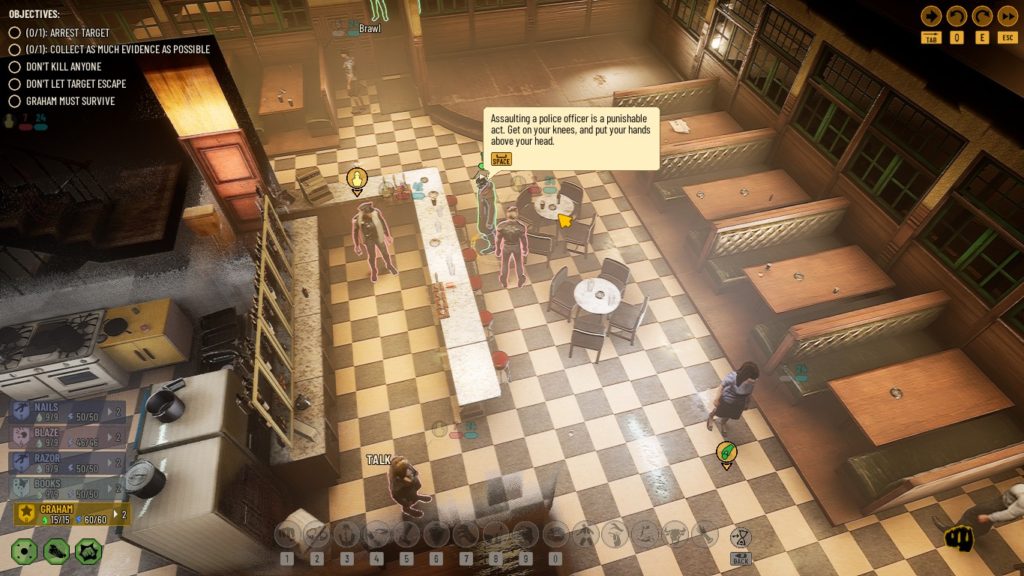
I draw a major issue with how the game handles the criminals’ heat level. According to the game’s logic, I need to lay low in order to reduce heat. The problem lies in the fact that the meter goes down ever so slightly. By the time a significant portion of the meter goes down, the police or a rival gang are already taking action against your group. Resolving the issue will result in more heat piling up for you. That alone already defeats the purpose of laying low. Alternatively, the criminals can convince the press to cover something else besides their activities. You’d think that it’s done deal, no? No. Because there’s a 50% chance the press will increase your influence. That’s all well and good, but I’m looking to lower my heat. NOT get more influence. This gamble isn’t worth it, but there’s no other option but to do this.
Mouse placement is also a constant struggle with this game. The way this game handles it, you move your mouse to any of the active tiles, and either click on it or to press spacebar to execute. The problem here is when you accidentally move your mouse to an unintended tile and execute a move through a zone of control. It’s a point of annoyance, but I can’t help but myself for the mistake. But you know, sometimes, I just want to go autopilot and not care about mouse placement. This game just makes me very wary of such small moves.
In the strictest terms of gameplay analysis, Company of Crime offers something seldom found in other games in the same genre. Its unique approach in non-lethal combat is very novel and doesn’t wear itself out too quickly. But the management aspect in the empire-building kills any chance of this game reaching greater heights. The endless loop of putting out fires gets tiresome rather quickly and it doesn’t help that the game could use more polish in terms of graphics and animations.
If the idea of an all-out brawler in a tactics game sounds appealing to you, by all means, pick this game up. Just know that there are several strings attached you need to be aware of before committing to the long journey of taking over the streets of London.




